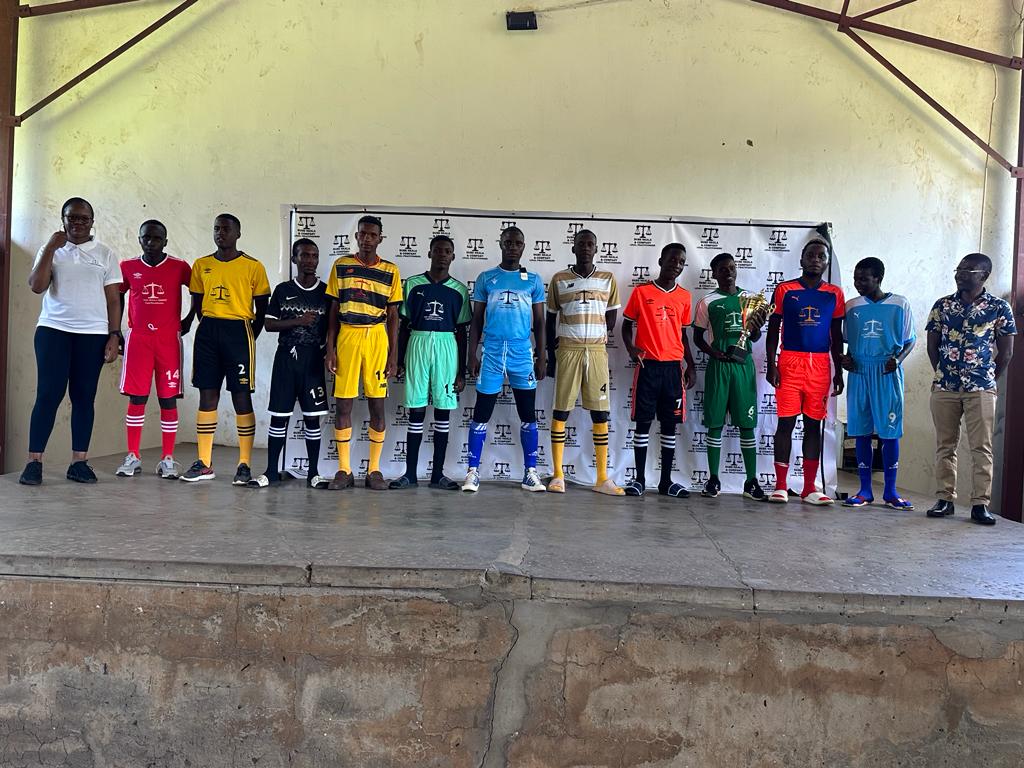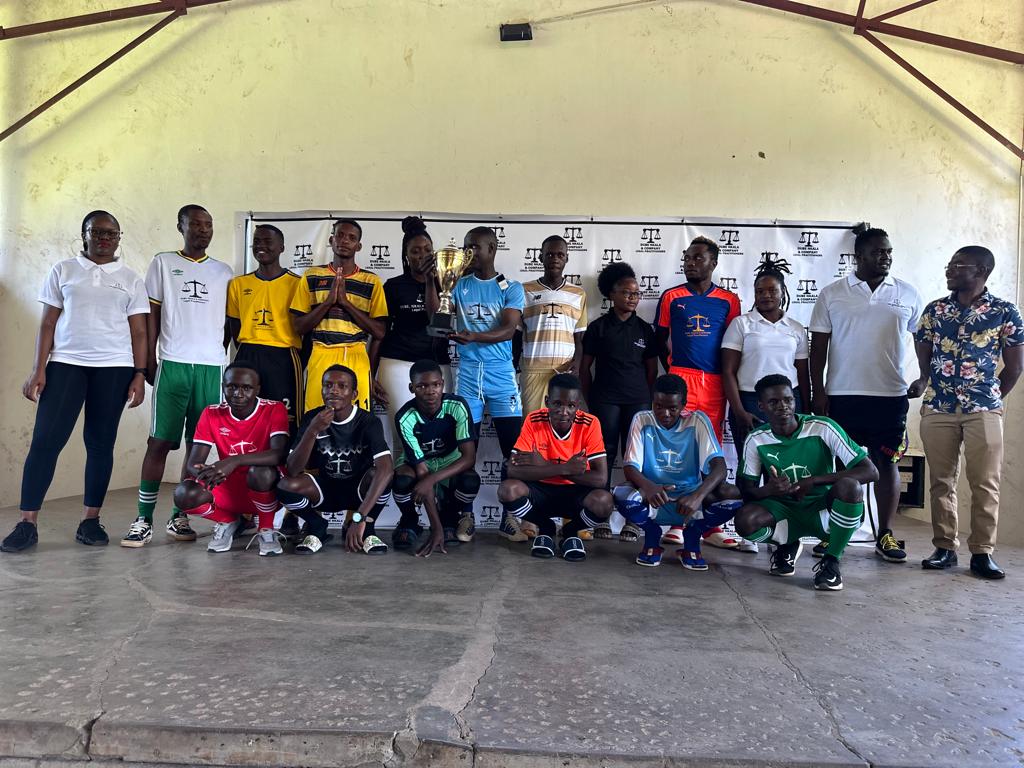BY NOKUTHABA DLAMINI
A Victoria Falls based law firm has donated football kits to twelve Division Two soccer players in Hwange West district in an effort to fight drugs and substance abuse among youths in the communities.
According to the law firm’s director Thulani Nkala, of Dube Nkala & Company Legal Practitioners, the donation aims to promote a healthy society where teenagers can engage in sports even after school.
Division Two falls under the Zimbabwe Football Association and it comes after Division One which is also below the premier league.

“As you are all aware that drugs are causing problems in our town, we felt that we can make a difference to counter this by donating some football kits and other equipment for our youths to use as they play,” Nkala said.
“We hope that this will be an ongoing partnership, but for now we will only be sponsoring for this upcoming season which is about to start and we shall renew as the next seasons approach on condition that we have mutual understanding which is based on respect because we will not want a situation where teams fight each one another.”
He said apart from the kits and trophy, the teams will play for a prize money at the end of the season.

Zimbabwe Football Association (ZIFA) Matabeleland North provincial acting chairman Clevious Ncube said the gesture will go a long way in nurturing young talents in the Division Two league, whom most of them are school going children and teenagers.
Prosper Neshavi, provincial ZIFA board member, lamented lack of interest in football sponsorship even at national level.
He said this has been part of the reasons why the country has been kicked out of the Federation Internationale Football Association (FIFA).
FIFA President Giovanni Infantino last year said the association had to suspend Zimbabwe and Kenya for government interference in the activities of the football associations.
“They know what needs to be done for them to be readmitted or for the suspension to be lifted. “Infantino said last year.
Meanwhile, as part of efforts to introduce sports tourism in Victoria Falls, tourism operators and other sports officials have joined hands to form a committee that will spearhead the allocation of land by the Victoria Falls City Council for sporting activities such as the football, tennis, boxing and rugby among other sporting disciples.
This was revealed by the committee chairperson Mthabisi Ncube who lamented lack of sporting facilities in the city.
He revealed that through their negotiations with the council, a certain portion of land has been set aside for the project.
Their end goal is to see the town hosting local and international teams, which will inturn boost the country’s tourism GDP.
“As we say that we are the tourism capital of Zimbabwe and possibly the better capital of Africa and we fail to have a 10 000 seater stadium,” he said.
“We can not fail to host training matches such as the rugby, football where teams such as the Kaizer Chiefs Football Club can decide to come to Victoria Falls as they prepare ahead of the season, so their coming will help us a lot because all the businesses from accomodation to the salons and vegetable vendors will benefit from their presence, but it cannot happen when we do not have the facilities.
“Our vision is to have a complex where we can host international games, international meetings for cricket, rugby, tennis. We want to be like what Capetown (South Africa) does where they have no free weekend in arts and sporting activities.”


 Slider3 years ago
Slider3 years ago
 National4 years ago
National4 years ago
 Opinion3 years ago
Opinion3 years ago
 Tourism and Environment4 years ago
Tourism and Environment4 years ago
 National2 years ago
National2 years ago
 National3 years ago
National3 years ago
 National2 years ago
National2 years ago
 National4 years ago
National4 years ago





